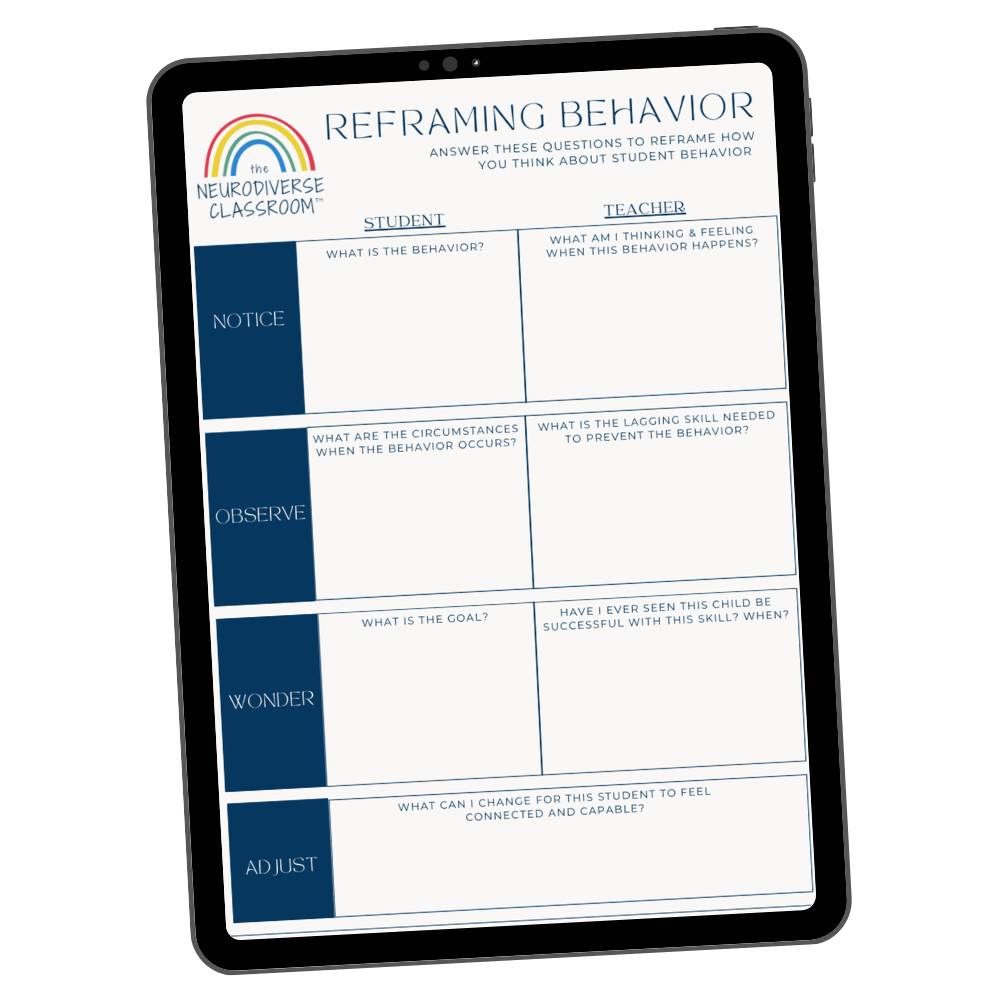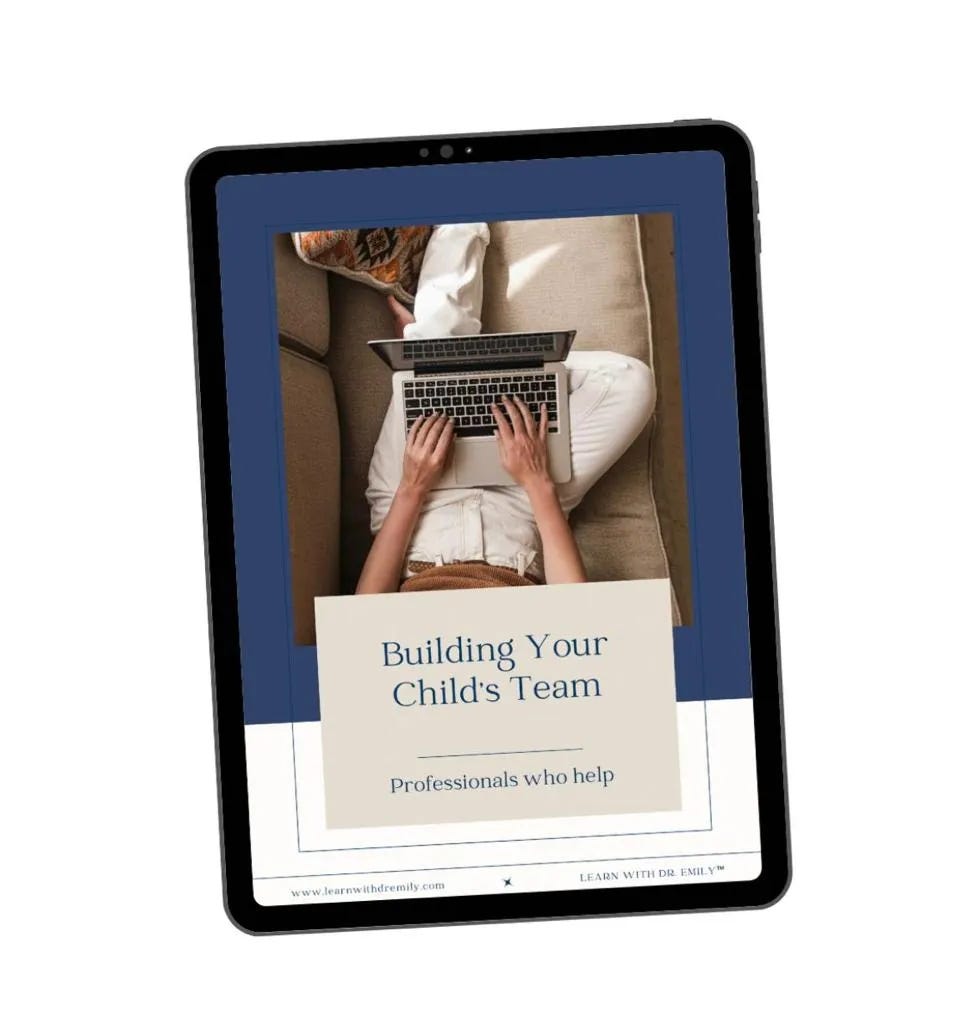Weekly Recap: Juggling Aging Parents & Neurodivergent Kids with Edla Prevette
+ What Parents Raising Neurodivergent Kids Worry About
Hey, Y’all,
The podcast is back for a second season with more interviews with some of my favorite colleagues. We will keep learning about the stress parents and educators face and how we can help each ourselves and other be the best we can be for our kids.
Listen in or read the full transcript of my interview with Edla Prevette below as we talk through caring for aging parents while raising neurodivergent kids and teens. There are lots of great tips in this one about how to balance showing up while managing your own energy in this season of life. I think you’ll find this one helpful.
Let’s keep learning together,
~Dr. Emily
On the podcast…
Juggling Aging Parents and Neurodivergent Children with Edla Prevette
For everyone who's a parent of a neurodivergent child, you might be taking care of your aging parents as well. You're in a Sandwich Generation, and it's not easy to navigate setting boundaries, finding support outside your family, and prioritizing your own mental health.
Today, Edla Prevette has some advice for navigating the complexities of this family dynamic.
As a mental health counselor for over thirty years, Edla Prevette has worked with neurodivergent children and their families as a therapist, consultant, and trainer. But currently, she is focusing her attention on the adults who are sandwiched between their kids' needs and the needs of their aging parents.
Blog feature…
What Parents Raising Neurodivergent Kids Worry About
If you’ve been following me for a while now, you know that I have been on both sides of the diagnostic feedback session. I’ve been the psychologist reviewing evaluation results with parents and I’ve been the parent on the receiving end of evaluation data that confirms what I already knew was unfolding before my eyes.
As a parent, I remember feeling overwhelmed and scared. As a psychologist, I’ve seen many parents process the news that their child needs something different to succeed; it can be such an emotional experience for some while others jump right in and embrace the journey.
While we forge ahead to find the best therapists, teachers, and social circles to help our children feel understood and included, we still worry about outcomes. Our worries are not about what college they will go to or if they will be good at a sport. We worry about much more basic things like: will my child be able to attend school without becoming overwhelmed by anxiety today or will we be able to find a group of peers that share his interests?
I want you all to know that you are not alone. Keep reading for the most common worries I have heard from parents raising neurodivergent kids and teens over the last 20 years.
For schools…
Bring me to your school to talk neurodiversity, mental wellness, and reframing behavior with educators!
If you’re a school administrator who loves watching students thrive, but your teachers need more guidance to meet the needs of such a diverse group of learners, I’m here for you.
You’ve provided professional development to support an understanding of social-emotional learning, but your teachers need more coaching on what to do when met with student behavior.
If you’re excited about the opportunity to create a school culture where your entire staff feels confident in supporting the neurodivergent needs and mental wellness of all students, you’re in the right place!
Resource for teachers….
FREE Reframing Behavior Worksheet
If you’re looking for a more positive way to figure out student behavior, I’m here for you. Think of this resource as your brainstorm session before the Functional Behavior Assessment (FBA).
The Reframing Behavior Worksheet will help you:
Identify what’s going on underneath the behavior: Brainstorm what might be happening within the student’s nervous system that may have led to the behavior
Organize your observations: Make notes of what you notice in the student but also what you notice in yourself to determine if you need any additional support with this student
Brainstorm when students are successful: When we notice the moments that students CAN do things, we can apply lessons of what works into other areas of need to better support for them
Adjust the environment to meet needs: Rather than asking students to do all the changing to meet a goal, we can also meet the child with adjustments in the environment that can lift them closer to success
For parents…
Are you new to the journey of raising a neurodivergent child? If so, you are likely in the process of building your child’s team. I created the referral tracker to help you stay organized.
The Referral Tracker will help you:
Prioritize the next step: Learn how to read through the recommendations of your child’s developmental evaluation and determine the next best step.
Learn who does what: The Provider Glossary comprehensively explains what each professional focuses on along this journey.
Organize your correspondences: Keep track of provider location, cost, availability, and who takes insurance in the Referral Tracker template.
Build your child’s team: Once completed, you will have an organized list of potential providers for your child at this point on the journey








